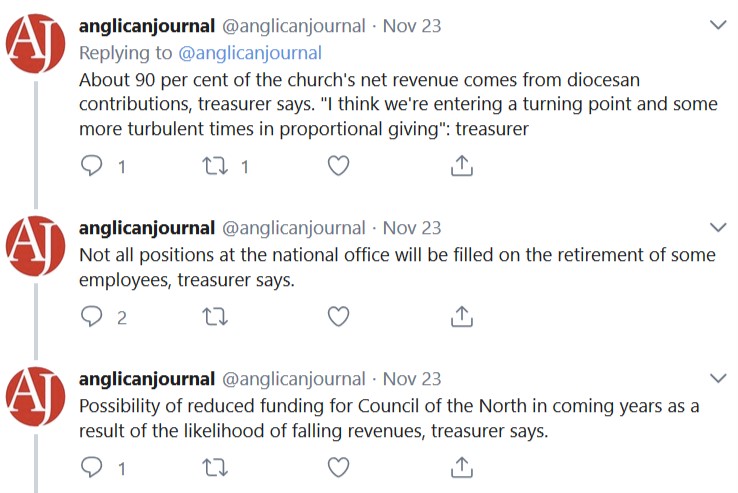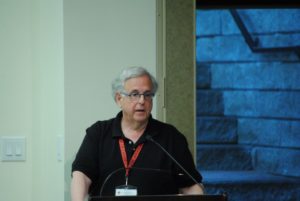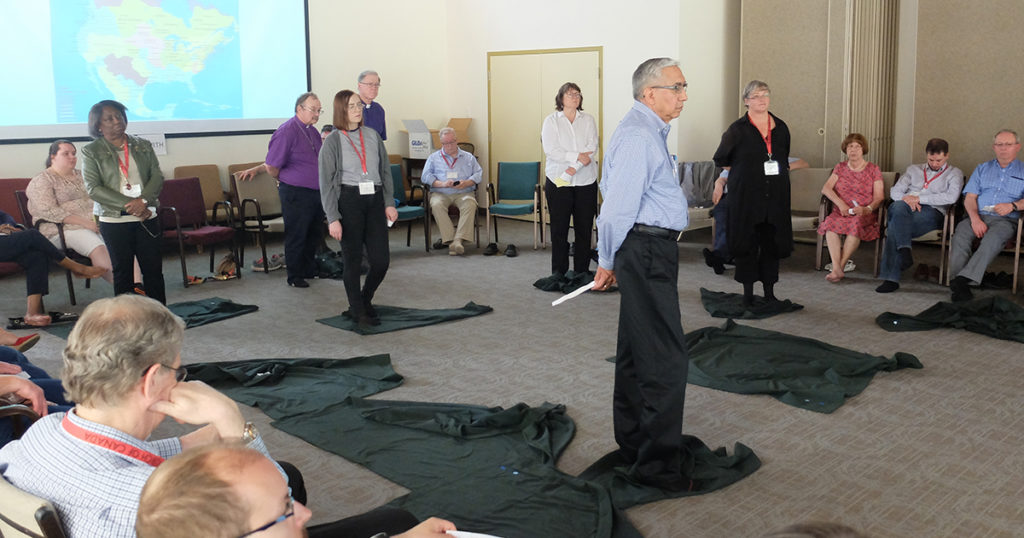 From here:
From here:
Smudging
The first meeting of the Council of General Synod (CoGS) for the 2019-2022 triennium began with a smudging ceremony. A cultural practice rooted in Indigenous tradition, smudging involves the burning of sacred medicine to create a smoke bath meant to purify a space, cleanse the spirit, bring clarity to the mind and connect people to the Creator.
You may think of this as a harmless nod to Indigenous traditions or as an example of occult New Age chicanery. Or as something in between.
However you see it, it raises the question of why the presence of Christ – surely the clergy believed he was present – was insufficient “to purify a space, cleanse the spirit, bring clarity to the mind and connect people to the Creator”?
Ironically, having just produced some unnecessary carbon dioxide and other more noxious pollutants, CoGs went on to discuss Resolution C004, our climate emergency (used to be called “global warming”, then “climate change”, then “climate emergency”).
Be it resolved that the Council of General Synod:
Encourage Anglicans, individually and corporately, to advocate for action on the climate emergency by all members of the municipal, provincial, and federal governments as a priority.
Encourage dioceses and parishes to initiate, support, and participate in climate justice rallies and other actions as necessary to encourage individual, collective, and governmental action to end the human contribution to climate change.
Note: “climate justice rallies” are now called “extinction rebellion”. No matter how hard it tries, the church just can’t keep up.





 The officer of General Synod who advises the Anglican Church of Canada on canon law and legal matters says he’s “absolutely confident” that human-rights complaints made against clergy who refuse to perform same-sex marriages would fail.
The officer of General Synod who advises the Anglican Church of Canada on canon law and legal matters says he’s “absolutely confident” that human-rights complaints made against clergy who refuse to perform same-sex marriages would fail.